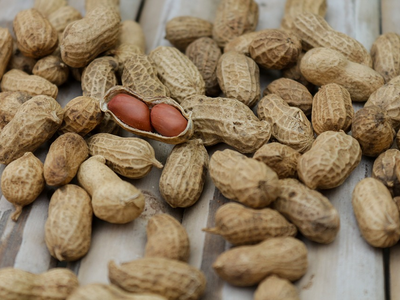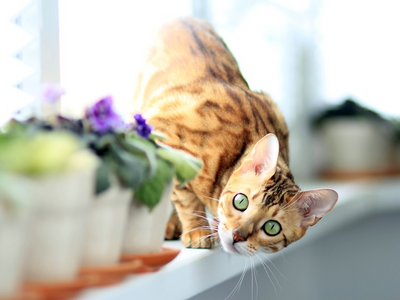25.02.2022
Can cats eat garlic? Untamed has the answer
Garlic is healthy and adds a tasty kick to various dishes for humans, but the same cannot be said for cat food. Can cats eat garlic at all? This guide tackles the following issues:
- Whether garlic is safe for feline consumption
- What can happen if a cat eats garlic
- What cats should eat
- What cats shouldn’t eat
- The best types of food available on the market

Garlic is dangerous for your kitty’s red blood cells!
Source: expatgardener
Is garlic safe for cats?
Garlic is not safe for cats. If your kitty eats garlic, gastrointestinal issues will be the least of your worries because this veggie carries numerous risks to your cat's health.
Garlic is a member of the allium family, together with onions, chives, leeks, and shallots. While safe and healthy for humans, these vegetables are highly toxic to cats. Garlic is the most dangerous among allium vegetables—it is five times more toxic than onions. It contains disulfides and thiosulphates, which can destroy your kitty’s red blood cells.
If garlic ends up in your cat’s digestive system, disulfides and thiosulphates enter their bloodstream and cause hemolytic anaemia—a nasty condition in which red blood cells get destroyed faster than they are produced. Hemolytic anaemia can be lethal if not treated immediately.
How much garlic is poisonous for cats?
As garlic is extremely toxic to cats, even the tiniest amount, like a single clove or 197 milligrammes of garlic powder, can lead to poisoning. The level of toxicity also depends on your kitty’s weight, breed, and prior conditions. Certain breeds are especially sensitive to garlic poisoning, including:
- Siamese
- Burmese
- Singapura
- Turkish Angora
- Oriental Shorthair
- Japanese Bobtail

What is that nasty smell coming from the cooker? It’s garlic, naturally.
Source: Nick Karvounis
What are the symptoms of garlic poisoning?
If your adult and healthy cat got their paws on some chopped garlic or a dish seasoned with garlic and onion powder, the situation requires a prompt response. Keep in mind that symptoms of poisoning typically take two to four days to manifest. Your cat may experience gastroenteritis or a more serious condition—anaemia. Check out the table below to learn how to distinguish the two:
|
Gastroenteritis |
Anaemia |
|
Garlic poisoning can lead to death if not treated immediately. It’s better to visit the vet instantly than wait for the symptoms to appear.

Yeeeees! Scratch me right there, hooman!
Source: nico.the british cat
Can cats eat garlic for fleas?
It’s a popular belief that garlic is a powerful flea repellent, and although it might be true, the risk of using it is too high because even rubbing it into your cat’s skin and fur is hazardous. Numerous other products can serve the same purpose without the accompanying risks. Check out some of them in the list below:
You should consult your veterinarian about any flea repellents, whether they are natural or artificial products.

Garlic bread is toxic to cats, be sure to keep it away from your feline friend.
Source: Jay Gajjar
Can cats eat garlic bread?
Plain bread may not be nutritionally appropriate for cats, but it isn’t dangerous. Garlic bread is downright toxic to cats. Even though it contains a small amount of garlic, this product is still harmful to your feline companion.
The severity of poisoning depends on the ingested amount, your kitty’s size, and how susceptible they are. Although they probably won’t die from one bite, feeding your feline garlic bread regularly leads to anaemia and eventually death.
Can I still feed plain bread to my cat?
Plain bread without any additives and seasoning is a safe treat for your cat if they like it. Keep in mind that feeding your cat bread regularly can lead to obesity because of the high carb content. Carbohydrates are useless for cats, so bread and other pastry are feline junk food.
My cat ate garlic! What should I do?
If your cat has eaten garlic, onions, or any of the allium vegetables, your reaction must be swift. You should:
- Visit a vet
- Call the Animal PoisonLine
Visiting a vet
As soon as you realise that your furry friend ate garlic, take them to the vet. Swift reaction is the only way to save your kitty from dire consequences. The vet will induce vomiting by administering 3% hydrogen peroxide solution or activated charcoal orally. It should remove anything that hasn’t yet been digested from their stomach. Some vets might also perform gastric lavage (stomach wash) to ensure all toxins are out of your cat’s system.
Your kitty should get an IV to prevent dehydration because they will most likely continue vomiting and having diarrhoea.
In cases of severe poisoning, cats might need a complete blood transfusion to survive.
Sometimes they need to stay at the vet clinic for a few days so the vet can monitor their recovery. The recovery period depends on the severity of toxicosis and your response time.
You should never try to induce vomiting in your cat on your own as it can be dangerous for your furball.
Calling the Animal PoisonLine
The Animal PoisonLine is a 24-hour triage service for pet parents who need urgent advice about pet poisoning. The phone number of this hotline is 01202 509 000. The APL team consists of vets, toxicologists, scientists, and veterinary nurses.
If you suspect that your kitty has garlic poisoning, call this line and get professional advice on the next steps to take.
How to prevent garlic poisoning in cats
You should take the following steps to prevent garlic poisoning:
- Store all allium vegetables out of paw’s reach—Make sure that you keep all toxic vegetables in a place your cat cannot access
- Don’t share your food—Popular human dishes, like pasta or risotto, often contain garlic and onions. Keep your seasoned food away from your kitty
- Keep your feline friend out of the kitchen—Your feline companion will taste whatever they can get their paws on, so keep your kitchen closed. Fresh garlic isn’t your only concern because baby food, soups, and broths often contain it as well

Keep toxic vegetables out of your kitty’s reach.
Source: Karolina Grabowska
Other popular food items that are toxic to cats
Garlic isn’t the only food that can cause serious health issues in cats. Numerous human products are not fit for feline consumption. Your cat should never eat:
- Chocolate
- Grapes and raisins
- Coffee
- Alcohol and raw dough
- Citrus fruits
- Coconut flesh and water
- Xylitol
Chocolate
Chocolate contains methylxanthines, specifically theobromine and caffeine, that can cause fever, vomiting, diarrhoea, seizures, muscle tremors, increased thirst, abdominal discomfort, and abnormal heart rhythm.
Cocoa in chocolate can also trigger allergic reactions. Excessive amounts of sugar may cause obesity, diabetes, and dental issues.
Coffee
Coffee is super bad for felines as it contains caffeine, which is poisonous for cats. Consuming coffee can lead to hyperactivity, tremors, seizures, increased thirst, and death.
Alcohol and raw dough
Alcohol is highly toxic to cats. Consuming alcohol, even in food, can lead to vomiting, diarrhoea, disorientation, breathing difficulties, depression, coma, and death. Alcohol can also appear in your kitty’s tummy if they ingest raw dough or yeast because of fermenting. Raw dough also causes bloating and digestive issues.
If you believe your cat ingested even the tiniest amount of alcohol, take them to the vet immediately.
Citrus fruits
The citric acid in limes, lemons, oranges, grapefruits, and clementines can cause severe stomach upsets. If you feed citrus fruits to your kitty regularly, the essential oils found in this fruit can cause issues with the central nervous system. Another toxic chemical found in citrus fruits is psoralen which can lead to photosensitivity in cats.
Coconut flesh and water
Coconut flesh and milk can cause digestive problems in cats, while coconut water is unsafe for them altogether because it’s high in potassium. Some cat parents believe coconut oil might cure some skin conditions, but consult your vet before introducing it as a skincare treatment or part of your kitty’s diet.
Xylitol
Xylitol is an artificial sweetener found in many products, such as jelly, toothpaste, chewing gum, and peanut butter. It is highly poisonous to cats. Consumption can lead to vomiting, lethargy, and liver failure.
Food to avoid in your cat’s diet
Particular human products aren’t toxic to cats but entail indirect health risks. Those food items include:
- Dairy products
- Raw meat, eggs, and bones
Dairy products
Most cats are lactose intolerant, so they cannot efficiently process milk, cheese, or any other dairy product. Feeding them dairy products will create digestive problems, such as vomiting, diarrhoea, and constipation. If your kitty likes milk, you can serve them plain yoghurt as a safer alternative because cats process yoghurt more easily than other dairy products. Make sure the product doesn’t contain sugar or other harmful ingredients.
Raw meat, eggs, and bones
While some cat parents like the idea of biologically appropriate raw food (B.A.R.F.), serving raw meat comes with many potential risks. Raw chicken, pork, or eggs tend to carry harmful bacteria, such as Listeria, Salmonella, and E. coli. There is also the risk of cross-contamination, so the whole household might be at risk. The usual symptoms of the infection are:
- Vomiting
- Diarrhoea
- Fever
Safe treats for kitties
Sharing food with your kitty can help them feel like a part of the family, so you should learn what’s safe for them. Check out the details in the following table:
|
Fruits |
Vegetables |
|
The fruits and veggies mentioned above are not toxic to your cat, but they are far from an ideal snack. Plant-based food doesn't have the necessary nutrients cats need to thrive. You can feed these fruits and veggies as occasional treats, but keep in mind that your kitty won’t be able to absorb the essential vitamins and minerals from plants. The same goes for proteins, the primary energy source for felines.
What should cats’ diet consist of?
Cats are obligate carnivores, so they must eat meat to get the essential nutrients. Your kitty’s diet should be based exclusively on:
- Animal protein
- Animal fat
- Vitamins and minerals
Animal protein
Cats need animal protein for energy and sustenance. The amino acid profile in meat protein is appropriate for felines, and the essential micronutrients like taurine and arginine are easily absorbable. Besides energy, proteins contribute to:
- Muscle development
- Healthy reproductive system
- Skin and coat health
- Proper organ function
The table below shows the bioavailability of protein in different types of meat:
|
Protein source |
Biological value |
|
98% |
|
94% |
|
92% |
|
87% |
Keep in mind that red meat—beef, lamb, and pork—is high in fat, so it should be served sparingly.
Animal fat
Animal fat tastes delicious to cats and provides fatty acids, such as:
- Linoleic acid
- Arachidonic acid
- Omega 3 and omega 6
These nutrients help maintain cell membranes, body heat, and proper organ function.
Vitamins and minerals
Cats can synthesise only vitamins C and K, while others must be obtained from food. Make sure your furry friend gets enough:
- Vitamin A—Found in fish and liver
- Vitamin B 12—Available in meat, eggs, and liver
- Vitamin E—Present in liver and wheat germ oil
- Vitamin D—Found in the liver, kidneys, and fish oil
Minerals are important for enzyme formation, pH balance, nutrient utilisation, and oxygen transportation. Your feline companion needs iron, calcium, magnesium, potassium, sodium, and chloride.
Can my kitty get essential nutrients from dry food?
Dry food is heavily processed, so it doesn’t have the nutritional profile that fits your kitty’s daily needs. Most cat biscuits are full of starch and grain, making them a high-calorie product. Carbs can cause gastrointestinal issues, diabetes, heart disease, hypertension, and obesity.
Because of its low moisture content, dry food can also cause dehydration in cats, leading to severe health conditions, such as cystitis, struvite crystals, and irritable bowel syndrome.
Dry food might be good if your kitty needs to gain weight. Some vets claim that it also helps maintain adequate oral hygiene. If you opt for dry food for your cat, mix it with wet or semi-moist food.
Why wet food is the best option for your feline
As cats are carnivorous by nature, they won’t prefer plant-based food over meat, bar an occasional strand of cat grass they need as a digestion booster. Wet food offers cats adequate meat content that agrees with their tummies perfectly and fulfils their nutritional needs.
Wet food is a better option for cats because it usually:
- Has the appropriate moisture content
- Is rich in protein
- Is low in carbs
- Has the right portion of vitamins and minerals
Vets suggest you feed your kitty wet food twice a day while the portions should be sized according to their weight. You should always check the ingredient list on cat food to ensure that the protein-fat-carb ratio is adequate and that the particular food is made from whole meat.

What is that lovely smell? I need to try this now!
Image (c) Untamed
Why Untamed is the best wet food
Untamed is a reliable and transparent manufacturer. We don’t make compromises when it comes to quality—we use only human-grade and ethically sourced ingredients, not the slaughterhouse scraps from the human supply chain. Every Untamed meal is prepared with love and care to ensure that your feline companion stays happy and healthy. Here’s why Untamed is an excellent choice:
- Our recipes are vet-formulated
- The preparation methods are not aggressive
- Our meals are rich in protein
- The products are hypoallergenic
Vet-formulated recipes
Untamed creates recipes in collaboration with vets to ensure our products are healthy and delicious. Think of it as home cooking upgraded by top nutritionists.
Gently simmered
We don’t process our food too much because we want to keep the nutrients and aroma intact. By cooking meals gently, we keep the food healthy and tasty.
Protein bombs
Untamed food contains twice as much protein as the industry standard. We never add grains, meat derivatives, artificial colouring, taste enhancers, or harmful chemicals to the mix because we want to offer only the best to your cat.
Hypoallergenic food
Our food doesn’t contain common allergens. Our gravy and jelly dishes are perfect for cats with sensitive stomachs.

Untamed is tasty and healthy, and your cat will loooove every single dish.
Image (c) Untamed
The famous Untamed effect
Here’s how our happy clients describe the benefits of the Untamed diet:
|
Period on Untamed |
The Untamed effect |
|
One week |
|
|
Two months |
|
|
Four months |
|
|
Six months |
|
Untamed is also perfect for cats of any age—kittens, adults, and seniors, whether they’re Persians, Siamese, Ragdolls, Bengals, Maine Coons, or British Shorthairs.
Take our TRY NOW quiz and get your Untamed taster pack. We are sure that even picky eaters will like our food.
How to get your first Untamed pack
Ready to get your hands on our premium cat food online? You can start with creating a tailor-made meal plan for your kitty, all you need to do is:
- Complete a questionnaire about your cat’s allergies and taste preferences
- Choose a meal plan
- Place your order
We'll have your trial pack of yummy cat food delivered to your door within a day, so your kitty can sample Untamed immediately. If they like it, we will replenish your stock around the same time every month.
You can always change, postpone, or cancel your order in a few clicks. All Untamed dishes have a shelf life of three years and come in 100% recyclable packaging.
Check out our other guides to what cats can or cannot eat:
|
|

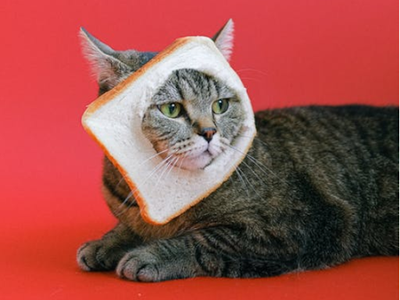
![Associated image for Best food for Ragdoll cats in the UK [Broken Down]](http://untamed.com/cdn/shop/articles/featured_best_food_for_ragdoll_cats_uk_400x300_crop_center.jpg?v=1646818249)
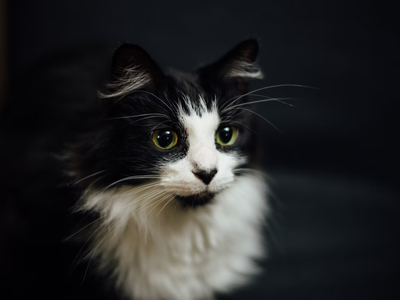
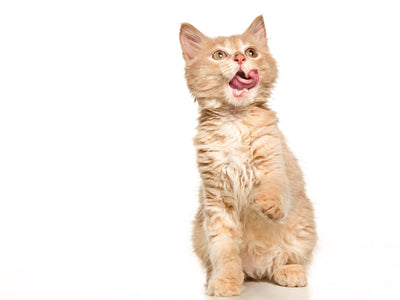
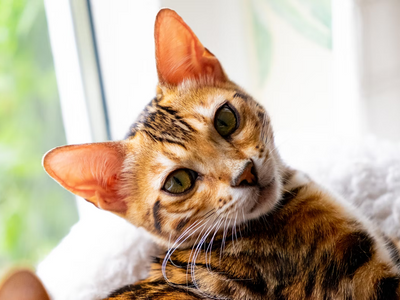
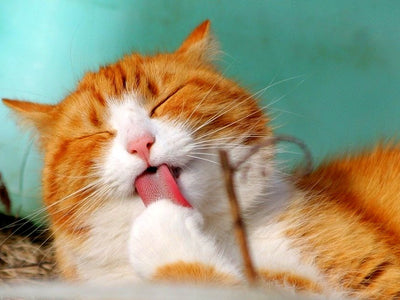
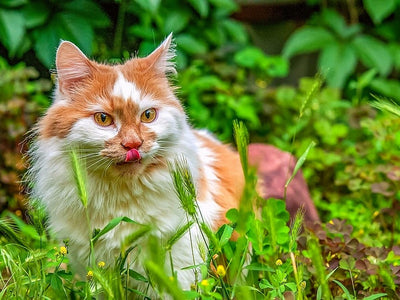
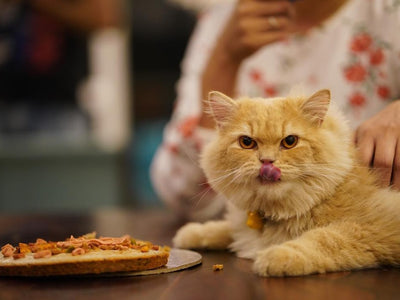
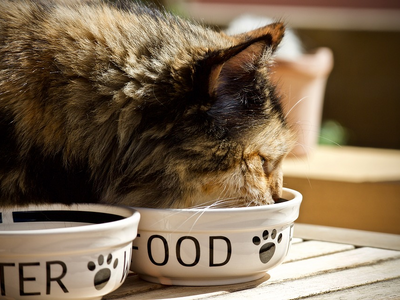
![Associated image for What human food can Sphynx cats eat? [Comprehensive list]](http://untamed.com/cdn/shop/articles/what_human_food_can_sphynx_cats_eat_Featured_400x300_crop_center.jpg?v=1648705074)
